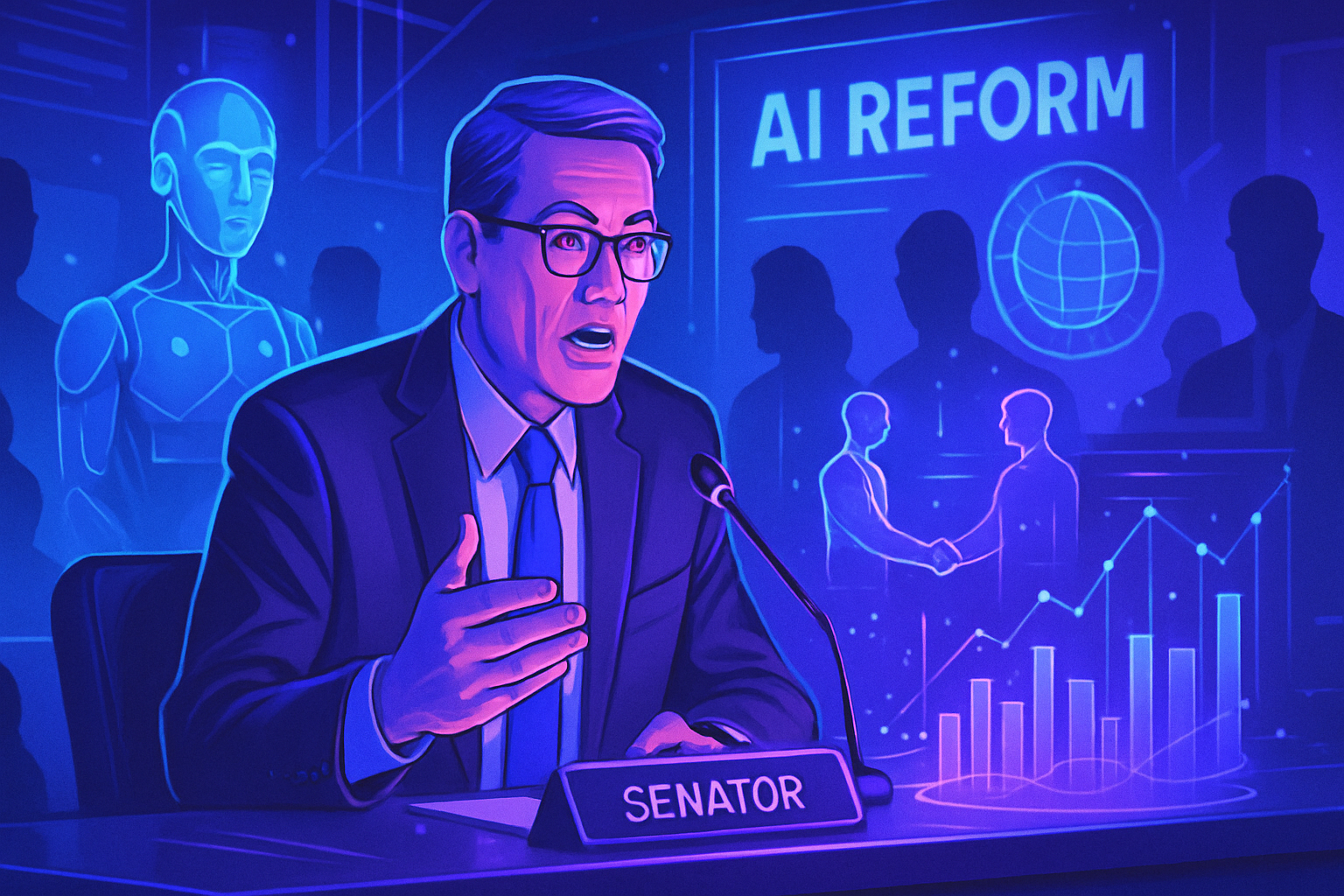The intriguing maneuvers of the Democratic senator from Colorado reveal crucial stakes in the AI reform. The debates within the Assembly illustrate the tensions between the tech sector and consumer protection. This delicate context shapes the legislative future of the country’s first AI law.
*A change of committee for a decisive effect.* The majority leader has reorganized the members to advance this bill.
*A struggle between innovation and regulation emerges.* Strategic decisions need to take into account the divergent voices defending distinct perspectives.
*At a crossroads, Colorado confronts the technological future.* The potential repercussions of this reform are immense, both for the public and private sectors.
Senate Maneuvering
Democratic Senator Robert Rodriguez, the Senate Majority Leader of Colorado, has undertaken a strategic reorganization of the Appropriations Committee. This initiative aims to advance a key proposal to amend the regulation of artificial intelligence (AI) in the state. The reform, which is set to come into effect next February, is currently igniting heated debates within Colorado’s political institutions.
Standoff within the Democratic Majority
Tensions persist between two main groups within the Democratic majority. On one hand, tech groups and educational institutions are calling for greater flexibility. On the other hand, consumer protection groups and unions are advocating for strict regulations. This opposition has led to a prolonged deadlock regarding the evaluation of the bill, necessitating a readjustment within the committee.
Reorganization and Implications
Rodriguez altered the composition of the committee by adding new progressive members. This maneuver has allowed the Democrats to now hold a majority of 5 to 2, more favorable to advancing the bill. Senator Jeff Bridges was excluded from the committee due to his positions deemed less favorable to the advancement of the text.
New Bill
The bill, designated as SB 4, focuses on transferring part of the regulatory burdens from end users, such as schools and local governments, to AI developers. This approach aims to alleviate the pressure on the entities deploying these technologies while maintaining appropriate oversight.
Ongoing Consultations
Rodriguez has also engaged in discussions with the governor’s office and representatives from the tech sector to refine the project. Amendments are being considered to arrive at a text that could satisfy all concerned parties. Despite this willingness to adapt, the senator remains firm on the idea that regulation must persist, demonstrating his determination not to yield to sector objections.
Competing Bills
Alongside the discussion on SB 4, another bill, HB 1008, has been proposed by a bipartisan group. This one aims to align AI regulation with existing civil rights and consumer protection laws. This text aims to postpone its implementation to 2027, suggesting that a reevaluation of policies will be necessary during the next legislative session.
Future Developments and Debates
The discussion around HB 1008 has recently taken a turn. The sponsors have chosen to modify the initial scope of the text in order to simplify the debate, proposing a delay in the regulation’s entry into force until October 2026. These changes aim to ensure a more thoughtful approach during the regular session that will begin next January.
Reactions and Perspectives
The adjustments made to the Appropriations Committee have sparked reactions among legislators. Bridges expressed that this would allow for necessary discussions. The timing of negotiations also seems to play a role, with the special session now extended until Tuesday unless the initiative for changing the AI law is abandoned.
The current political climate, characterized by a willingness to find compromise, suggests that these reforms could mark a significant turning point in the management of artificial intelligence at the state level. Discussions are therefore to be followed closely for their repercussions on the tech sector and consumer protections.
FAQ on the Democratic Senator’s Maneuvers Regarding Colorado’s AI Law
What are the recent changes made to the composition of the Colorado Senate appropriations committee?
Senator Robert Rodriguez has changed the composition of the Senate appropriations committee to strengthen the Democratic majority, shifting from 4-3 to 5-2. This was done notably to advance the AI law reform.
What is the main objective of Bill 4 concerning the AI law?
Bill 4 aims to shift part of the regulatory burden from businesses using AI to AI developers, to alleviate the responsibilities of schools, local governments, and law enforcement deploying this technology.
Why is the AI law reform essential for Colorado?
This reform is considered crucial to balance technological growth while ensuring consumer protection and civil rights, addressing the concerns of tech and consumer protection groups.
How have committee members reacted to the changes made by Senator Rodriguez?
Newly appointed members, such as progressive senators Katie Wallace and Mike Weissman, have expressed their support, stating that they would vote to advance the bill.
Why is it unusual to change a committee’s composition mid-session?
Changing a committee’s composition mid-session is exceptional because it may be seen as a strategic maneuver to influence the outcome of a vote on a specific bill.
What would be the consequences of a failure of the AI bill?
A failure of the bill could lead to the immediate implementation of the current AI law, which could pose significant regulatory challenges for the businesses and institutions involved, as well as impact long-term technological innovation.
What are the arguments of opponents to the reform of the AI law in Colorado?
Opponents, including some consumer protection groups and unions, fear that this reform may reduce existing consumer protections and create a legal void around the use of AI.
What is the importance of ongoing discussions between Rodriguez, the governor’s office, and the tech industry?
These discussions are crucial to find a compromise that could make the bill acceptable to all parties while maintaining adequate consumer protections.






